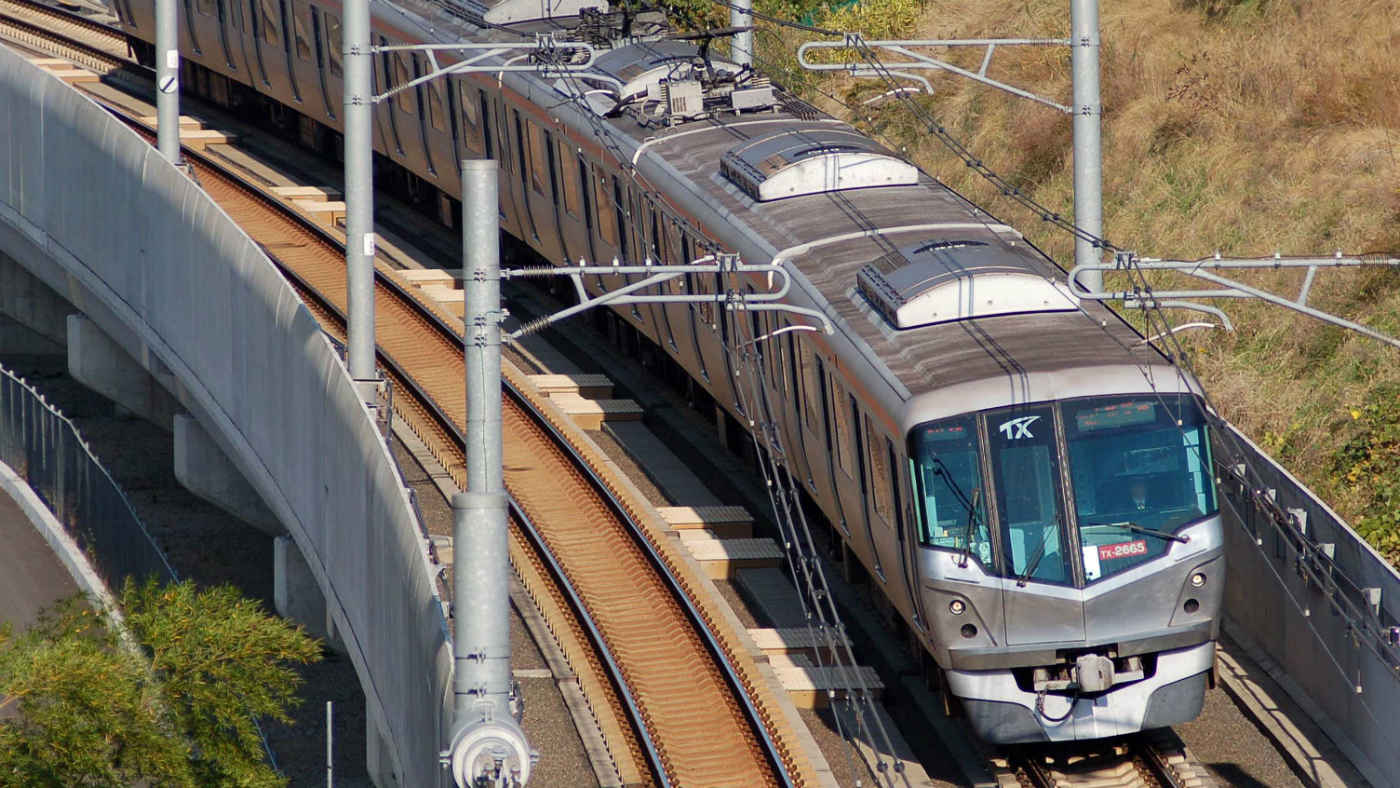Japanese rail operator ‘deeply sorry’ as train leaves 20 seconds early
Tsukuba Express apologises for ‘severe inconvenience’, prompting comparisons on Twitter

A free daily email with the biggest news stories of the day – and the best features from TheWeek.com
You are now subscribed
Your newsletter sign-up was successful
What’s the most severe rail inconvenience you’ve faced? From delays and reroutings to cancellations and replacement bus services, the UK train network can often leave commuters and travellers in a foul mood. In Japan, however, things appear to be a little different.
Yesterday morning, a train on the Tsukuba Express line between Tokyo and the city of Tsukuba departed Minami Nagareyama station 20 seconds earlier than scheduled, prompting a full-blown apology from the Tsukuba Express management team.
The rail operator said they “sincerely apologise for the inconvenience”, and that the mistake came about as “the crew did not sufficiently check the departure time and performed the departure operation”.
The Week
Escape your echo chamber. Get the facts behind the news, plus analysis from multiple perspectives.

Sign up for The Week's Free Newsletters
From our morning news briefing to a weekly Good News Newsletter, get the best of The Week delivered directly to your inbox.
From our morning news briefing to a weekly Good News Newsletter, get the best of The Week delivered directly to your inbox.
The company added that the train had been scheduled to leave at 9:44:40 local time but left at 9:44:20.
Predictably, in countries where an early train is deemed a miracle rather than something to apologise for, the statement prompted some comparisons.
The furore over a mistimed train stems from Japan's famously efficient rail network, in which even a few seconds’ discrepancy in an arrival or departure can have a knock-on effect, harming schedules for the rest of the day.
Trains in Australia, by contrast, are defined as being “on time” if the train leaves within five minutes of its scheduled departure, writes ABC News.
A free daily email with the biggest news stories of the day – and the best features from TheWeek.com
For the UK, it’s more complicated due to the extensive privatisation of the rail network, and the rules are often bent to save face. For example, in 2015, the worst-performing rail company in the UK was CrossCountry Trains, according to independent rail industry figures. However, the company itself claimed that 89 percent of its trains arrived on time during that year, as its services are only recorded as late if they arrive more than ten minutes after the scheduled time.
-
 The environmental cost of GLP-1s
The environmental cost of GLP-1sThe explainer Producing the drugs is a dirty process
-
 Greenland’s capital becomes ground zero for the country’s diplomatic straits
Greenland’s capital becomes ground zero for the country’s diplomatic straitsIN THE SPOTLIGHT A flurry of new consular activity in Nuuk shows how important Greenland has become to Europeans’ anxiety about American imperialism
-
 ‘This is something that happens all too often’
‘This is something that happens all too often’Instant Opinion Opinion, comment and editorials of the day
-
 Epstein files topple law CEO, roil UK government
Epstein files topple law CEO, roil UK governmentSpeed Read Peter Mandelson, Britain’s former ambassador to the US, is caught up in the scandal
-
 Iran and US prepare to meet after skirmishes
Iran and US prepare to meet after skirmishesSpeed Read The incident comes amid heightened tensions in the Middle East
-
 Israel retrieves final hostage’s body from Gaza
Israel retrieves final hostage’s body from GazaSpeed Read The 24-year-old police officer was killed during the initial Hamas attack
-
 China’s Xi targets top general in growing purge
China’s Xi targets top general in growing purgeSpeed Read Zhang Youxia is being investigated over ‘grave violations’ of the law
-
 Panama and Canada are negotiating over a crucial copper mine
Panama and Canada are negotiating over a crucial copper mineIn the Spotlight Panama is set to make a final decision on the mine this summer
-
 Why Greenland’s natural resources are nearly impossible to mine
Why Greenland’s natural resources are nearly impossible to mineThe Explainer The country’s natural landscape makes the task extremely difficult
-
 Iran cuts internet as protests escalate
Iran cuts internet as protests escalateSpeed Reada Government buildings across the country have been set on fire
-
 US nabs ‘shadow’ tanker claimed by Russia
US nabs ‘shadow’ tanker claimed by RussiaSpeed Read The ship was one of two vessels seized by the US military